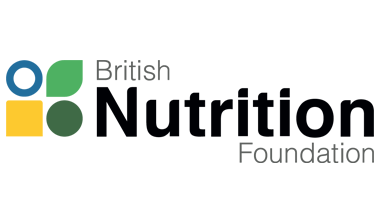Can Vitamin D Help Prevent The Common Cold?
Healthy DietAlthough not serious for most people, the common cold can make us feel pretty miserable, and is one of the leading causes of visits to the GP and absenteeism from school and work. A cold is a mild, viral respiratory tract infection (RTI) so medications such as antibiotics are generally ineffective.
Unsurprisingly treatments to reduce the likelihood of getting a cold and/or lessen the severity of symptoms or indeed shorten its duration, are of high public and scientific interest. Supplementation of individual nutrients particularly those involved in the immune system have been explored for their potential to prevent conditions such as the common cold. But can vitamin D help?
What is the evidence for vitamin D in the prevention of respiratory tract infections?
Vitamin D is well-recognised for its vital role in bone and muscle health, but perhaps less well known is that it plays a regulatory role in the functioning of the immune system, with a health claim approved by European Food Safety Authority (EFSA) acknowledging this. But is there any evidence that vitamin D supplementation reduces our risk of getting a cold?
Observational studies suggest an association between low vitamin D status and the increased likelihood of developing acute RTIs, including colds and flu. However, systematic reviews of randomised controlled trials (RCTs, the gold standard of studies) with vitamin D supplementation have had mixed results, with some suggesting reduced risk and others showing no effect.
An in depth review by the Scientific Advisory Committee on Nutrition (SACN, the independent body that advises Government on matters relating to diet, nutrition and health) on vitamin D and health in 2016 found there was insufficient evidence to draw firm conclusions and did not support recommending vitamin D supplementation to reduce the risk of RTIs. In order to develop this evidence base SACN recommends that we need large RCTs, particularly looking at the effects on participants with low serum concentrations. This is to address the concern that many studies to date have investigated mixed groups of participants including those with adequate status.
The issue of baseline vitamin D status in study participants may be key! A systematic review in 2017 indicated that daily or weekly vitamin D supplementation [daily dose equivalents ranging from <20 to >50 micrograms (µg)] may be useful in the prevention of acute RTIs, particularly for people who had low vitamin D status.
Thus there may be an effect only in those subgroups of the population who are vitamin D deficient. The important point is that more may not necessarily be better – whilst deficiency in vitamin D may have an impact on immunity, once adequate status has been achieved, higher intakes may not be beneficial.
SACN did acknowledge the importance of adequate vitamin D in order to protect musculoskeletal health. So although the evidence they assessed for helping prevent colds may be inconclusive, the importance of adequate vitamin D should not be understated – particularly as 1 in 5 adults in the UK population have low vitamin D status. And now, as we move into the autumn/winter when we cannot get adequate amounts from the sun, it’s a good time to think about vitamin D whether it’s from supplements and/or foods.
In the meantime, it’s important to remember that eating for good health is not just about single nutrients – we need a range of nutrients from a varied, balanced diet, not just vitamin D, along with a healthy lifestyle which includes regular physical activity, to keep our immune system strong.






































































